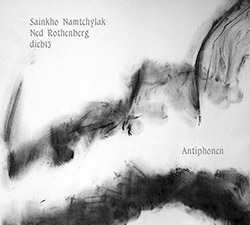
The first meeting for the trio of Tuvan free improvising vocalist & throat singer Sainkho Namtchylak, saxophonist Ned Rothenberg and turntablist Dieb13, captured in performance at Music Unlimited 33, at Alter Schlachthof Wels, Austria in 2019 for 2 improvisations — the 40 minute "Shave and a Haircut" and the 11 minute "Two Bits" — in incredibly creative and formidable music.
Out of Stock
Quantity in Basket: None
Log In to use our Wish List
Shipping Weight: 3.00 units
Sample The Album:
Sainkho Namtchylak-throat singing
Ned Rothenberg-saxophone
Dieb13-turntable
Click an artist name above to see in-stock items for that artist.
UPC: 5052571085721
Label: Klanggalerie
Catalog ID: GG339
Squidco Product Code: 29526
Format: CD
Condition: New
Released: 2020
Country: Germany
Packaging: Digipack
Played live during Music Unlimited 33, at Alter Schlachthof Wels, Austria, on November 8th, 2019, by Christoph "Fizl" Hehn.
"Sainkho Namtchylak is a singer originally from Tuva, an autonomous republic in the Russian Federation just north of Mongolia. She is known for her Tuvan throat singing or Khoomei. Her music encompasses avant-jazz, electronica, modern composition and Tuvan influences. Once the Soviet Union had collapsed, she moved to Vienna, making it her base, although she traveled widely, working in any number of shifting groups and recording a number of discs that revolved around free improvisation. Amongst them are collaborations with Evan Parker, Ned Rothenberg, The Moscow Composers Orchestra and Wolfgang Puschnig.
Ned Rothenberg is an American multi-instrumentalist who was born in 1956 in Massachusetts. He has been internationally acclaimed for both his solo and ensemble music, presented for the past 33 years on 5 continents. He performs primarily on alto saxophone, clarinet, bass clarinet, and the shakuhachi - an endblown Japanese bamboo flute. His solo work utilizes an expanded palette of sonic language, creating a kind of personal idiom all its own.
die13 was born as Dieter Kovacic in 1973. He is a turntablist, hacker, filmmaker, autodidact, composer, collageur and conscientious copyright objector. Since the late 1980s he has explored the possibilities of vinyls, cassettes, harddisks, ip-protocols etc. as material for collages and compositions. Using various playing techniques and his own lathe cutter, he has pushed the development of turntables as instruments aside "classical dj techniques" and developed his very unique style. Antiphonen was the first time this trio played together. Kazuhisha Uchihashi from Japanese group Altered States co-curated the festival and 2019 and invited the musicians to perform together."-Klanggalerie
Artist Biographies
• Show Bio for Sainkho Namtchylak "Sainkho Namtchylak is an experimental singer, born in 1957 in a secluded village in the south of Tuva. She is proficient in overtone singing; her music encompasses avant-jazz, electronica, modern composition and Tuvan influences. In Tuva, numerous cultural influences collide: the Turkic roots and culture it shares with Central Asian states, the Xinjiang Uyghur Autonomous Region, Bashkortostan and Tatarstan; the strong Mongolic cultural influence and traditions it shares with Mongolia, Inner Mongolia, Buryatia and Kalmykia; the cultural influences from the various Siberian nomadic ethnic groups such as Samoyeds, Yeniseians, Evenks and from the Russian Old Believers, the migrant and resettled populations from Ukraine, Tatarstan and other minority groups west of the Urals. All of these, to extents, impact on Namtchylak's voice, although the Siberian influences dominate: her thesis produced while studying voice, first at the University of Kyzyl, then in the Gnesins Institute in Moscow during the 1980s focussed on Lamaistic and cult musics of minority groups across Siberia, and her music frequently shows tendencies towards Tungus-style imitative singing. Being the daughter of a pair of schoolteachers, she grew up in an isolated village on the Tuvan/Mongolian border, exposed to the local overtone singing - something that was generally reserved for the males; in fact, females were actively discouraged from learning it (even now, the best-known practitioners remain male, artists like Huun-Huur-Tu and Yat-Kha). However, she learned much of her traditional repertoire from her grandmother, and went on to study music at the local college, but she was denied professional qualifications. Quietly she studied the overtone singing, as well as the shamanic traditions of the region, before leaving for study further in Moscow (Tuva was, at that time, part of the U.S.S.R.). Her degree completed, she returned to Tuva where she became a member of Sayani, the Tuvan state folk ensemble, before abandoning it to return to Moscow and joining the experimental Tri-O, where her vocal talents and sense of melodic and harmonic adventure could wander freely. That first brought her to the West in 1990, although her first recorded exposure came with the Crammed Discs compilation Out of Tuva. Once the Soviet Union had collapsed, she moved to Vienna, making it her base, although she traveled widely, working in any number of shifting groups and recording a number of discs that revolved around free improvisation - not unlike Yoko Ono - as well as performing around the globe. It was definitely fringe music, although Namtchylak established herself very firmly as a fixture on that fringe. In 1997 she was the victim of an attack that left her in a coma for several weeks. Initially she thought it was some divine retribution for her creative hubris, and seemed to step back when she recorded 1998's Naked Spirit, which had new age leanings. However, by 2000 she seemed to have overcome that block, releasing Stepmother City, her most accessible work to date, where she seemed to really find her stride, mixing traditional Tuvan instruments and singing with turntables and effects, placing her in a creative firmament between Yoko and Björk, but with the je ne sais quoi of Mongolia as part of the bargain. A showcase at the WOMEX Festival in Berlin brought her to the attention of many, and in 2001 a U.S. tour was planned. After graduating, Namtchylak worked with several ensembles: the Moscow State Orchestra; the Moscow-based jazz ensemble Tri-O (since 1989); School of Dramatic Art under the direction of Anatoly Vasiliev (Moscow), various orchestras in Kyzyl, the Tuvan 'folkloric orchestra'-a far less sanitised example of folk baroque than, say, existed in pre-independence Kazakhstan-that has housed many of Tuva's other important singers. However, for several years Namtchylak annually invited foreign musicians to Tuva to promote Tuvan culture. Based in Vienna, Namtchylak sculpted Stepmother City to reflect her ambivalent feelings about European metropolis. Calling herself "first and foremost a woman from the Steppes," Namtchylak's first musical inspiration came from her nomadic grandmother, who would sing lullabies for hours. She grew up in a culture where people just sing when they feel like it-singing when they're happy and singing when they're sad. Denied professional credentials from a local college where her explorative nature led her toward forbidden male-dominated overtone singing styles, Namtchylak transferred to Moscow where she discovered Russian improvisation and where she also continue to study about vocal techniques of Siberian lamaistic and shamanistic traditions. Audiences are astounded by the diversity of sounds Namtchylak can produce with her voice, from operatic soprano to birdlike squawks, from childlike pleas to soulful crooning; which at various moments elicit comparisons to Zap Mama, Patti Smith, Billie Holiday, and Nina Hagen. In 1997, Namtchylak was horrifically attacked by Tuvinian racketeers which left her in a coma for two weeks. Again, sources regarding this contradict - others maintain that she underwent surgery for a severe malignant brain tumor; regardless, 1997 marked an appreciable change in her life. Since then, she has been resident in exile in Vienna, and has also recorded more prolifically as a solo artist - although she has released over thirty albums in the past twenty years, only seven have been entirely solo. Namtchylak claims that music and spirituality are related by desire, or the tension that yells to reawaken people. Eager to take part in the process of remembering what has been forgotten, Stepmother City presents itself like a map, proposing routes to connect Western physicality with Eastern spirituality.[2] In 2005, the Italian publishing house Libero di Scrivere released a book of poetry Karmaland. In 2006 in Saint Petersburg, a book Chelo-Vek (a play on words in Russian, conflating "chelovek" meaning "person" and, though the hyphen, obsoletism "chelo" meaning "front" or "forehead" and "vek" meaning "age" or "eon" or "century", into something like "front-eon") was published in Russian, Tuvinian and in English. in 2016, she released "like a bird or spirit, not a face", an album produced by Grammy-winner Ian Brennan (music producer, author) and featuring members of Tinariwen." ^ Hide Bio for Sainkho Namtchylak • Show Bio for Ned Rothenberg "Composer/Performer Ned Rothenberg has been internationally acclaimed for both his solo and ensemble music, presented for the past 33 years on 5 continents. He performs primarily on alto saxophone, clarinet, bass clarinet, and the shakuhachi - an endblown Japanese bamboo flute. His solo work utilizes an expanded palette of sonic language, creating a kind of personal idiom all its own. In an ensemble setting, he leads the trio Sync, with Jerome Harris, guitars and Samir Chatterjee, tabla, works with the Mivos string quartet playing his Quintet for Clarinet and Strings and collaborates around the world with fellow improvisors. Recent recordings include this Quintet, The World of Odd Harmonics, Ryu Nashi (new music for shakuhachi), and Inner Diaspora, all on John Zorn's Tzadik label, as well as Live at Roulette with Evan Parker, and The Fell Clutch, on Rothenberg's Animul label." ^ Hide Bio for Ned Rothenberg • Show Bio for Dieb13 "Dieb13 is the performing name of Dieter Kovačič, a Viennese-based avant-garde musician. He has also performed under the names Takeshi Fumimoto, Echelon, Dieter Bohlen, and dieb14. After appearing on several compilations documenting the burgeoning Viennese avant-garde scene of the late 1990s, he released his first solo album in 2000. He has gone on to perform in a number of collaborations with other notable performers, including Burkhard Stangl, erikm, Mats Gustafsson and the John Butcher Group." ^ Hide Bio for Dieb13
4/2/2025
Have a better biography or biography source? Please Contact Us so that we can update this biography.
4/2/2025
Have a better biography or biography source? Please Contact Us so that we can update this biography.
4/2/2025
Have a better biography or biography source? Please Contact Us so that we can update this biography.
Track Listing:
1. Shave And A Haircut 40:36
2. Two Bits 11:00
Improvised Music
Free Improvisation
Electro-Acoustic
Electro-Acoustic Improv
Recordings by or featuring Reed & Wind Players
Turntablists
Unusual Vocal Forms
Rothenberg, Ned
European Improvisation, Composition and Experimental Forms
NY Downtown & Metropolitan Jazz/Improv
Trio Recordings
Staff Picks & Recommended Items
Search for other titles on the label:
Klanggalerie.


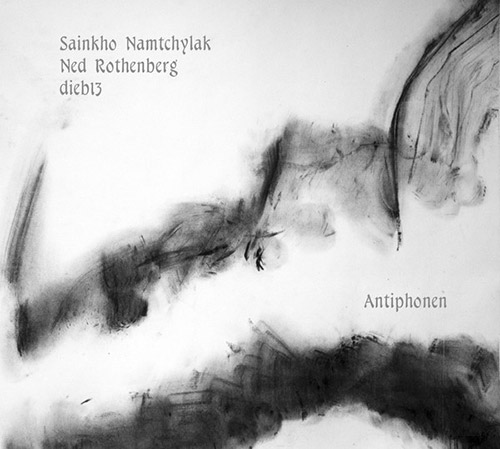
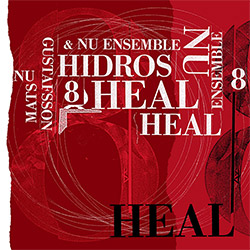
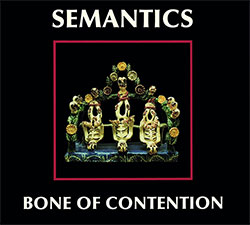
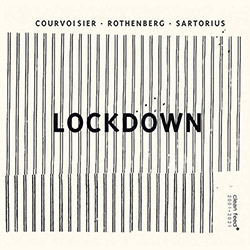



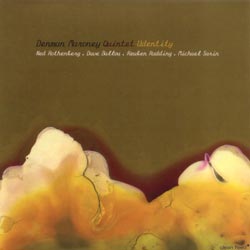
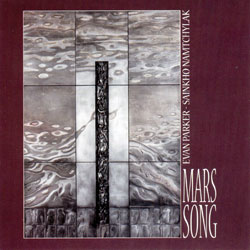

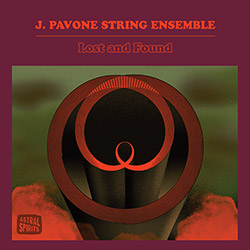


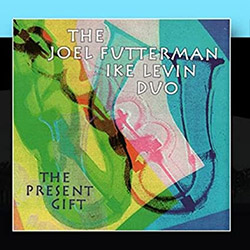
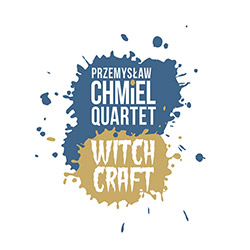
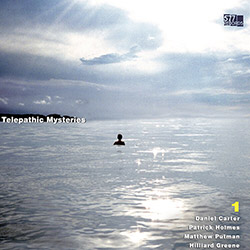
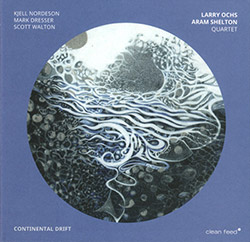


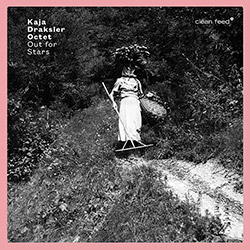
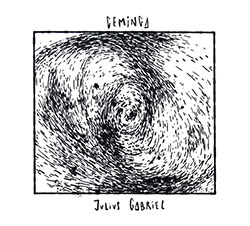
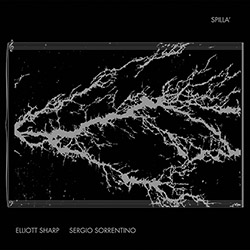





![Niblock, Phill / Anna Clementi / Thomas Stern: Zound Delta 2 [VINYL]](https://www.teuthida.com/productImages/misc4/34623.jpg)
![Yoko, Ono / The Great Learning Orchestra: Selected Recordings From Grapefruit [2 CDs]](https://www.teuthida.com/productImages/misc4/35841.jpg)

![Brotzmann, Peter / John Edwards / Steve Noble / Jason Adasiewicz: The Quartet [2 CDs]](https://www.teuthida.com/productImages/misc4/35975.jpg)
![Brotzmann, Peter / John Edwards / Steve Noble / Jason Adasiewicz: The Quartet [VINYL 2 LPs]](https://www.teuthida.com/productImages/misc4/35976.jpg)
![Thomas, Pat: The Solar Model of Ibn-Al Shatir [VINYL]](https://www.teuthida.com/productImages/misc4/36044.jpg)




![Rodrigues, Ernesto / Nuno Torres / Guilherme Rodrigues: Whispers In The Moonlight - In Seven Movements [2CDs]](https://www.teuthida.com/productImages/misc4/35765.jpg)



![Cocks, Laura: FATHM [VINYL]](https://www.teuthida.com/productImages/misc4/36055.jpg)










![Ackerley / Prymek / Turner: All Hope With Sleeping Minds [CASSETTE]](https://www.teuthida.com/productImages/misc4/35950.jpg)
![Myers, David Lee : Tin Drop Tear [BOOK w/ DOWNLOAD]](https://www.teuthida.com/productImages/misc4/36030.jpg)




![Schindler, Udo / Sandy Ewen / Damon Smith: Munich Sound Studies Vols. 4, 5 & 6 [3 CDs]](https://www.teuthida.com/productImages/misc4/35966.jpg)
![Turbulence Orchestra & Sub-Units: Smear Out the Difficulties (Double Live) [2 CDs]](https://www.teuthida.com/productImages/misc4/36048.jpg)


![Perelman, Ivo / Tyshawn Sorey: Paralell Aesthetics [2 CDs]](https://www.teuthida.com/productImages/misc4/35871.jpg)


![Sjostrom, Harri: SoundScapes #4 Festival Berlin 2023 [3 CDs]](https://www.teuthida.com/productImages/misc4/35874.jpg)



![Glenn, Jordan: Flustered [CASSETTE]](https://www.teuthida.com/productImages/misc4/35948.jpg)










![Olencki, Weston : Pearls Ground Down To Powder [VINYL]](https://www.teuthida.com/productImages/misc4/35956.jpg)
![Myers, David Lee: Oculus [2CDs]](https://www.teuthida.com/productImages/misc4/35857.jpg)


![dustsceawung: dustsceawung [CASSETTE w/ Download]](https://www.teuthida.com/productImages/misc4/35753.jpg)




![Halls of the Machine: Atmospheres For Lovers And Sleepers [CASSETTE w/ DOWNLOAD]](https://www.teuthida.com/productImages/misc4/35806.jpg)



![AHC (Alexander Cooper): Lase [2 CDs]](https://www.teuthida.com/productImages/misc4/35754.jpg)



![Fagaschinski, Kai / Yan Jun : Graveyard Processions [VINYL w/ DOWNLOAD]](https://www.teuthida.com/productImages/misc4/35474.jpg)









![Zorn, John / JACK Quartet: The Complete String Quartets [2 CDs]](https://www.teuthida.com/productImages/misc4/35609.jpg)

![Lonsdale, Eden: Dawnings [2 CDs]](https://www.teuthida.com/productImages/misc4/35480.jpg)







![Sanna, Claudio: Compositori Sardi Contemporanei II [2 CDs]](https://www.teuthida.com/productImages/misc4/35317.jpg)







![Zurria, Manuel: Fame di Vento [3 CDs]](https://www.teuthida.com/productImages/misc4/35167.jpg)


![Electric Bird Noise / Derek Roddy: 8-10-22 [CD EP]](https://www.teuthida.com/productImages/misc4/35970.jpg)








![Elephant9 : Mythical River [VINYL]](https://www.teuthida.com/productImages/misc4/34624.jpg)



![Elephant9 with Terje Rypdal: Catching Fire [VINYL 2 LPs]](https://www.teuthida.com/productImages/misc4/35355.jpg)
![Deerlady (Obomsawin, Mali / Magdalena Abrego): Greatest Hits [VINYL]](https://www.teuthida.com/productImages/misc4/34876.jpg)







![Surplus 1980: Illusion of Consistency [CD]](https://www.teuthida.com/productImages/misc4/35069.jpg)
![Staiano, Moe: Away Towards the Light [VINYL + DOWNLOAD]](https://www.teuthida.com/productImages/misc4/35037.jpg)



![Caveira (Gomes / Sousa / Abras / Ferrandini): Ficar Vivo [VINYL]](https://www.teuthida.com/productImages/misc4/34643.jpg)
![Coley, Byron: Dating Tips for Touring Bands [VINYL]](https://www.teuthida.com/productImages/misc4/17906.jpg)

![Lost Kisses: My Life is Sad & Funny [DVD]](https://www.teuthida.com/productImages/misc4/lostKissesDVD.jpg)